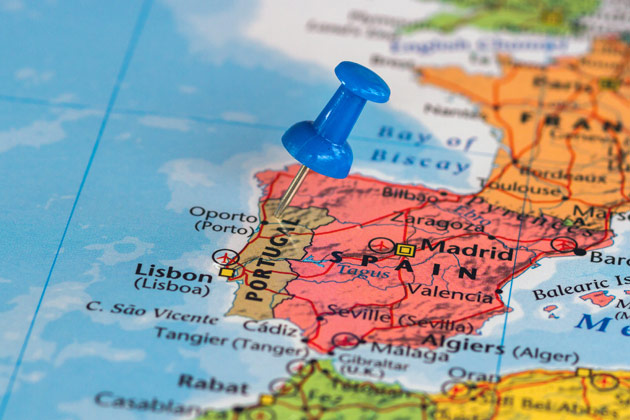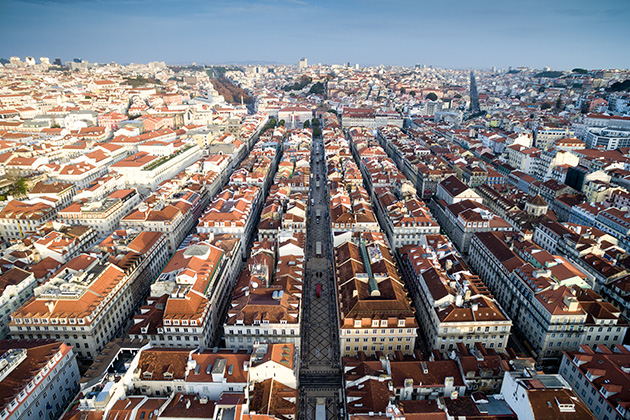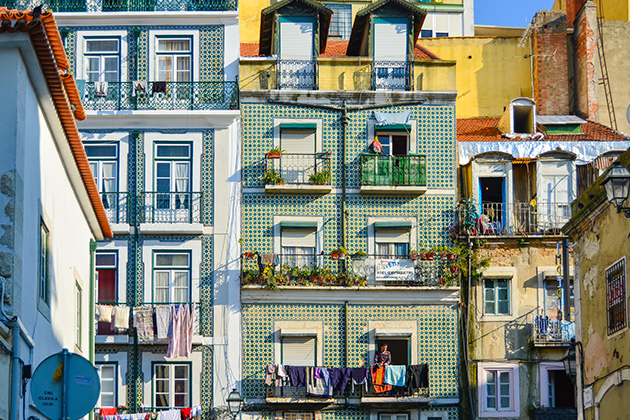
When we think of immigrant communities in Portugal the Brazilian community in Portugal immediately springs to mind, since we are so used to their presence. But the truth is that this community’s profile has changed over the years. In this article we introduce you to the Brazilian community in Portugal, as it is today.
Changes to the Brazilian community in Portugal
The first large migratory wave made itself felt in the 80s and 90s of the previous century, but the profile of the Brazilians who come to live in Portugal has changed significantly over the years. Since 2014/2015, according to Cyntia de Paula, chairwoman of the Casa do Brasil in Lisbon, the typical Brazilian immigrant is much better qualified, “these are people with university or masters degrees, or even students”.
Whereas until then the Brazilian community in Portugal tended to work in services, construction or similar sectors, due to lack of formal education, currently we are witnessing a “qualified migration, but which then often doesn’t manage to find jobs, composed of health professionals, IT specialists, journalists, psychologists and engineers, for instance. Generally, they then tend to end up in the services sector, care for the elderly, restaurant sector or construction”. Which leads Cyntia de Paula to conclude that “the professional training of the new arrivals does not always match the vacancies or the positions these people end occupying”.
How many Brazilians live in Portugal?
According to figures provided by the Foreigners and Borders Service (SEF), relating to 2019, there are 151,304 Brazilians living in Portugal, based on residency permits. However, you can double that number if you count on those who have dual nationality, according to the Casa do Brasil in Lisbon, or who are having their situation regularised, as well as those who have not been able to obtain residency permits, 60% of whom are women.
Around 19% of the 2019 figures provided by SEF are employed, which, again, applies only to the number of residence cards emitted for work purposes. Those who possess any other type of document, and who are naturally permitted to work, even if that was not the reason why they initially entered Portugal, are not included.
What is the Brazilian community in Portugal like
The number of big businessmen who came to Portugal for investment purposes is residual, but there are small businessmen who came to invest in sectors such as tourism and services “and who are now [2021] in dire straits because of the pandemic, due to loss of revenue, and this includes both big investors or small independent investors”.
Where does the Brazilian community in Portugal live
The Brazilian community in Portugal began by settling in and around Lisbon, and this is still where it is most visible, with 60,469 people, according to estimates by SEF for 2019. After the capital, the most popular city is Porto, with 19,761, Setúbal (16,424), Faro (13,631) and Braga (9,295).
Cyntia de Paula explains that many Brazilians moved to Setúbal and Palmela due to the high rents in big cities and adds that, more recently, the presence of the Brazilian community in Portugal in towns such as Sintra and Cascais or even cities such as Aveiro and Braga, has become more noticeable.
Why is Portugal an interesting destination for Brazil?
One of the factors that draws more Brazilian citizens to Portugal, according to the chairwoman of the Casa do Brasil in Lisbon, is a desire for a more peaceful life. “Since the 80s and 90s the migration of Brazilians to Portugal has been quite expressive in this regard and, in this sense, the Portuguese migration policies play a very important role. We know that, after handing in the paperwork requesting legalisation, we might have to wait for two, three or even four years, but we also know that, if we do our part, we will obtain residence permits”.
The fact that there is a common culture and language is also an attraction. And education is a determining factor. “We can say that 20 to 30% of students that arrive from Brazil invest in Portugal, by paying tuition to carry on their studies in Europe”.
To a large extent, Portugal also represents a place where Brazilians can get on with their lives. “A lot of people arrive now who are already 35 or 40 and they come with their families. They are qualified professionals who are well informed and are looking for a better quality of life, something more peaceful than they had in Brazil. Often they are people who had visited before, who came on holiday and decided to stay, which happens to students as well, they often prefer to stay with us after they complete their studies.”
Incentives aimed at higher age groups are equally attractive. “Many Brazilians who are past the age of retirement come on holiday to Portugal and decide to stay, they often make the best of here and of Brazil. During our summer they stay in Portugal and then they return to Brazil to enjoy the warmer season in their country of origin”.
The interest of the Brazilian community in Portugal is nothing new. “Portugal has been an interesting destination for Brazilians for around 30 years, and I think it still is. There is a general idea that it can be a welcoming country, although there is still a lot of prejudice and stereotypes, which especially affect the women, but overall it is quite positive.
The truth is that the Brazilian community in Portugal tends to socialise more with the Brazilians themselves at first than with other foreigners, or with the Portuguese, due to the prejudice that still exists, but as the years go by, they end up forging stronger ties with the Portuguese. The climate is also inviting and there is a very democratic access to culture, so the truth is that the balance ends up being frankly positive for those who stay.”
For more information:
Serviço de Estrangeiros e Fronteiras
Tel: +351 808 202 653/ +351 808 962 690
Email: gricrp.cc@sef.pt
Site: www.sef.pt
Casa do Brasil in Lisbon
Tel: +351 213 400 000 / +351 935 141 813
Email: direcao@casadobrasildelisboa.pt
Site: www.casadobrasildelisboa.pt
General Consulate of Brazil in Lisbon
Tel: +351 211 358 587
Email: cg.lisboa@itamaraty.gov.br
Site: http://cglisboa.itamaraty.gov.br/pt-br/



